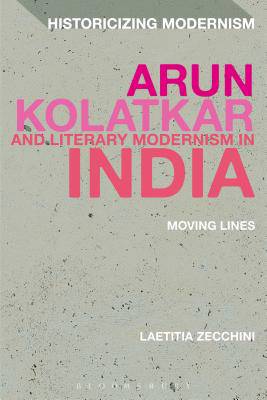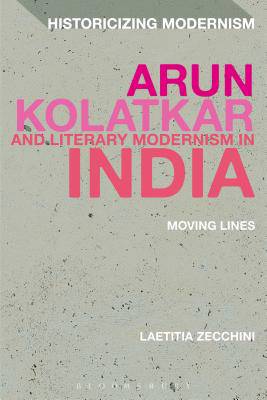
Bedankt voor het vertrouwen het afgelopen jaar! Om jou te bedanken bieden we GRATIS verzending (in België) aan op alles gedurende de hele maand januari.
- Afhalen na 1 uur in een winkel met voorraad
- In januari gratis thuislevering in België
- Ruim aanbod met 7 miljoen producten
Bedankt voor het vertrouwen het afgelopen jaar! Om jou te bedanken bieden we GRATIS verzending (in België) aan op alles gedurende de hele maand januari.
- Afhalen na 1 uur in een winkel met voorraad
- In januari gratis thuislevering in België
- Ruim aanbod met 7 miljoen producten
Zoeken
€ 296,95
+ 593 punten
Uitvoering
Omschrijving
In this first scholarly work on India's great modern poet, Laetitia Zecchini outlines a story of literary modernism in India and discusses the traditions, figures and events that inspired and defined Arun Kolatkar. Based on an impressive range of archival and unpublished material, this book also aims at moving lines of accepted genealogies of modernism and 'postcolonial literature'.
Zecchini uncovers how poets of Kolatkar's generation became modern Indian writers while tracing a lineage to medieval oral traditions. She considers how literary bilingualism allowed Kolatkar to blur the boundaries between Marathi and English, 'Indian' and 'Western sources; how he used his outsider position to privilege the quotidian and minor and revived the spirit of popular devotion.
Graphic artist, poet and songwriter, storyteller of Bombay and world history, poet in Marathi, in English and in 'Americanese', non-committal and deeply political, Kolatkar made lines wobble and treasured impermanence. Steeped in world literature, in European avant-garde poetry, American pop and folk culture, in a 'little magazine' Bombay bohemia and a specific Marathi ethos, Kolatkar makes for a fascinating subject to explore and explain the story of modernism in India.
Zecchini uncovers how poets of Kolatkar's generation became modern Indian writers while tracing a lineage to medieval oral traditions. She considers how literary bilingualism allowed Kolatkar to blur the boundaries between Marathi and English, 'Indian' and 'Western sources; how he used his outsider position to privilege the quotidian and minor and revived the spirit of popular devotion.
Graphic artist, poet and songwriter, storyteller of Bombay and world history, poet in Marathi, in English and in 'Americanese', non-committal and deeply political, Kolatkar made lines wobble and treasured impermanence. Steeped in world literature, in European avant-garde poetry, American pop and folk culture, in a 'little magazine' Bombay bohemia and a specific Marathi ethos, Kolatkar makes for a fascinating subject to explore and explain the story of modernism in India.
Specificaties
Betrokkenen
- Auteur(s):
- Uitgeverij:
Inhoud
- Aantal bladzijden:
- 248
- Taal:
- Engels
- Reeks:
Eigenschappen
- Productcode (EAN):
- 9781441167507
- Verschijningsdatum:
- 25/09/2014
- Uitvoering:
- Hardcover
- Formaat:
- Genaaid
- Afmetingen:
- 163 mm x 239 mm
- Gewicht:
- 544 g

Alleen bij Standaard Boekhandel
+ 593 punten op je klantenkaart van Standaard Boekhandel
Beoordelingen
We publiceren alleen reviews die voldoen aan de voorwaarden voor reviews. Bekijk onze voorwaarden voor reviews.









